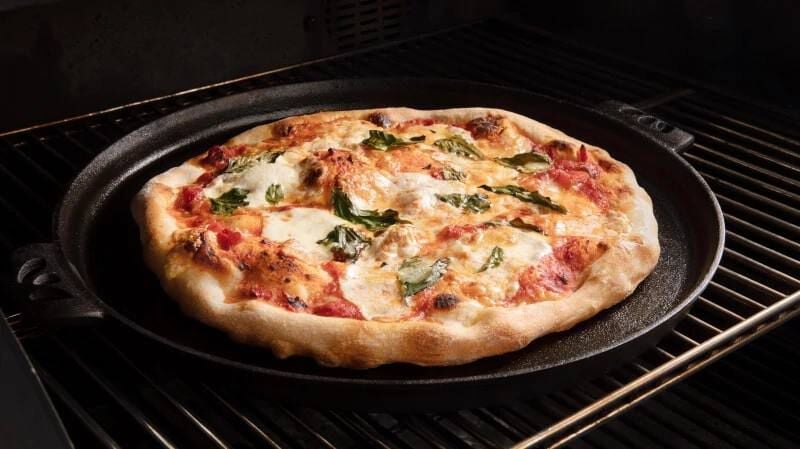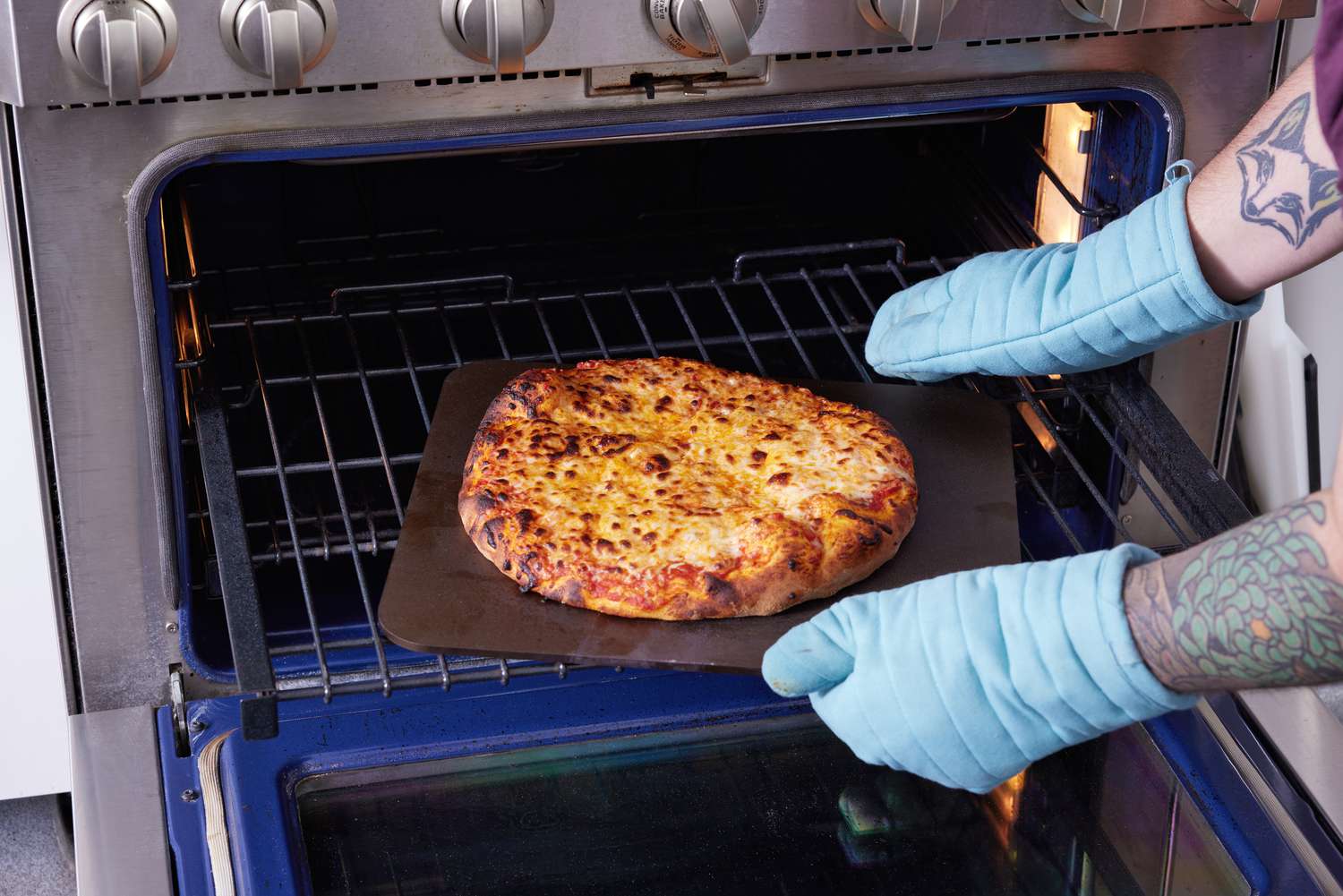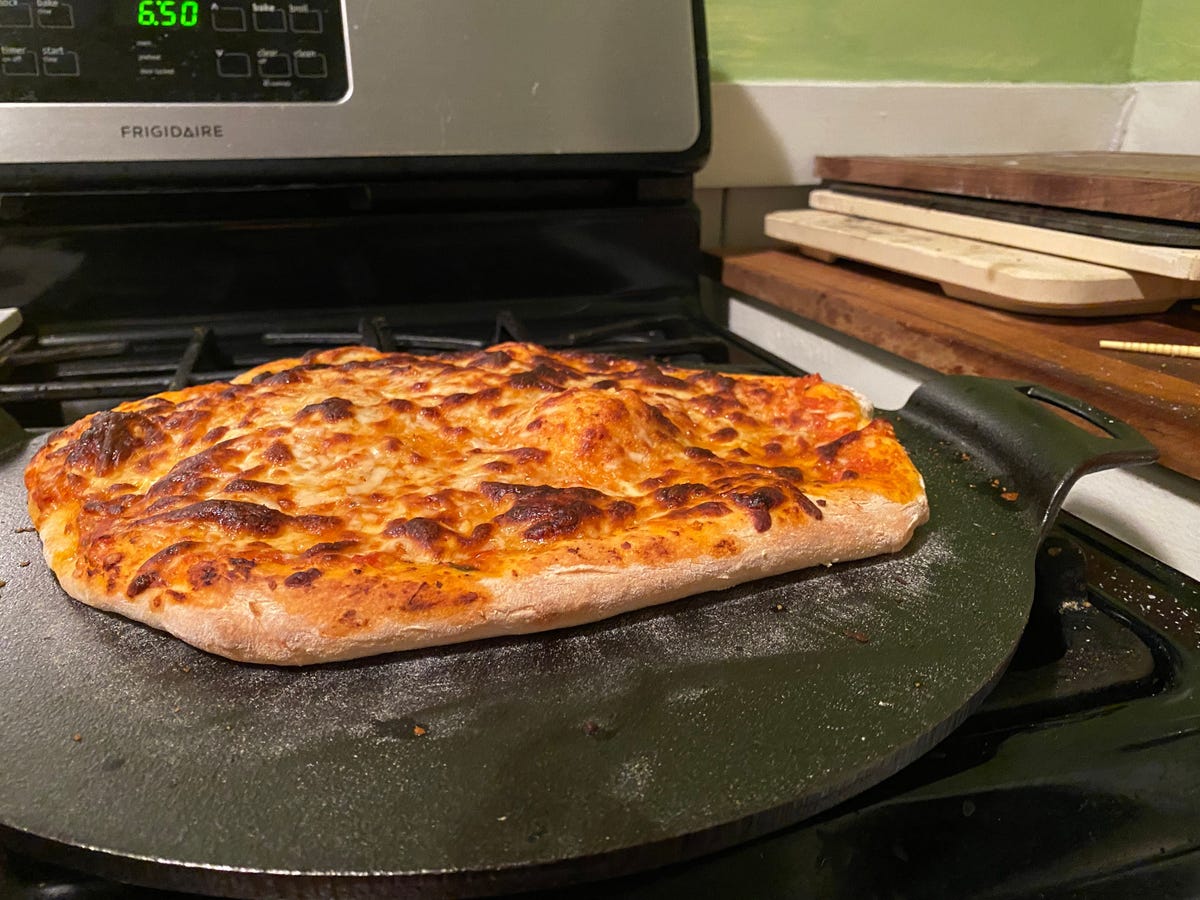For kitchen professionals, the secret to perfect crusts and consistent baking lies in the effective use of a baking stone. If you're wondering how to prep your baking stone for first use, this guide is tailored for you. The initial preparation is crucial to enhance the longevity and performance of your stone. We'll walk you through this process and help you achieve the perfect baking results that only a well-prepped stone can provide.
Understanding the nuances of baking stone preparation not only boosts your baking quality but also extends the life of your kitchen weapon. Let's get started on this essential kitchen routine.
Understanding Your Baking Stone
A baking stone is more than just a tool; it's a game-changer. Crafted from materials like ceramic, stone, or clay, a baking stone absorbs heat and retains it, ensuring even heat distribution across your bakes. Before we dive into how to prep your baking stone for first use, it's important to understand its nature and characteristics. [](https://bakingbakewaresets.com/how-to-use-stone-bakeware/)
Types of Baking Stones
Not all baking stones are created equal. The choice between ceramic, cordierite, or clay depends on your specific baking needs. For instance, while ceramic stones heat evenly, cordierite stones are known for their durability. Understanding these differences will aid in better usage and maintenance.
When choosing the right stone for your kitchen, consider how it will complement your cooking techniques and the types of food you typically bake.
Initial Cleaning and Setup
Before your baking stone sees its first bake, a crucial step is ensuring it's clean and ready for seasoning. Start by wiping it down with a damp cloth to remove any factory dust. Avoid using soap, as baking stones are porous and will absorb detergents, which could affect the flavor of your food.
Seasoning Your Stone
Just like a cast-iron skillet, seasoning your stone helps in building a non-stick layer. While some stones may not require seasoning, doing so can help mitigate sticking and improve performance. Apply a thin layer of vegetable oil, and allow your stone to heat gradually in the oven to bake in the oil.
Seasoning might seem optional to some, but this initial step can significantly enhance the efficiency of your baking experience, contributing to perfectly baked pizzas and breads.
Essential Considerations for First Use
When it comes to how to prep your baking stone for first use, keeping a few critical factors in mind can make all the difference. The first bake is as much about getting familiar with your new tool as it is about achieving culinary excellence.
Placement in the Oven
Where you place your baking stone in the oven can affect its performance. It's often recommended to place the stone on the lowest rack, which allows for maximum heat retention and distribution. For more detailed placement tips, check out oven placement insights.
This placement ensures even heating, which is crucial for producing evenly baked goods.
Heating Process
Gradually heating your stone is crucial to prevent cracking. Preheat the oven with the stone inside to around 200C (approx. 400F) for about 30 minutes. This gradual increase in temperature helps the stone acclimate and prevents thermal shock.
Baking Bread and More
Once you've followed the initial steps on how to prep your baking stone for first use, you'll see its magic unfold as you bake bread, pizza, or pastries. The art lies in maximizing the stone's natural properties to produce the ideal texture every time.
Maintenance Tips for Longevity
Regular maintenance of your baking stone will foster a lasting relationship, yielding more consistent results. Avoid using soap, and instead, clean with a damp cloth or a baking stone brush to remove any residue after use.
Store your stone in a safe place to avoid chipping, and make sure it's thoroughly dry before storage to prevent mold or other damage.
Common Mistakes and How to Avoid Them
Even the most experienced chefs can make mistakes in their baking stone care. Avoid using water extensively for cleaning, exposing the stone to drastic temperature changes, or using metal utensils that could scratch its surface.
For more tips on kitchen tools and techniques, explore our article on what not to put in a saucepan: things you should never put in a saucepan.
Why Professional Knowledge Matters
As kitchen professionals, understanding how to prep your baking stone for first use offers a technical edge in culinary efforts, ensuring every loaf or pizza is as perfect as it can be. Every detail matters when striving for excellence in a professional kitchen environment.
Your experience with baking stones will deepen as you experiment and note how different variableslike the type of stone, oven settings, and foodsaffect results.

FAQs
Can I use my baking stone on a grill?
Yes, with care! Similar to oven use, preheat the grill with the stone inside. Ensure uniform heat distribution to prevent cracking.
What if my baking stone cracks?
While minor cracks are common, larger ones compromise performance. Gently use it while assessing durability, or consider replacement if needed.
Do I need to season all stones?
Not necessarily. Check your stone's manual. Seasoning is beneficial but not always required, depending on the material and finish.
Remember to incorporate your own nuances and experiences into these processes, tailoring techniques to your specific culinary needs and preferences. Ensure your baking journey is filled with delectable outcomes by thoroughly understanding and preparing your tools.
For further reading on the endless potential uses of baking stones, visit six inventive ways to use baking stones.
This article contains affiliate links. We may earn a commission at no extra cost to you.






Leave a comment
This site is protected by hCaptcha and the hCaptcha Privacy Policy and Terms of Service apply.